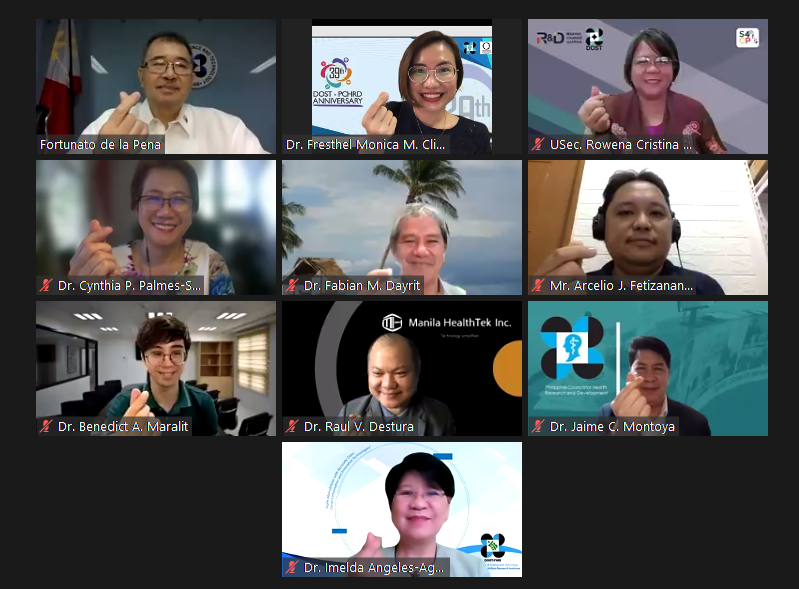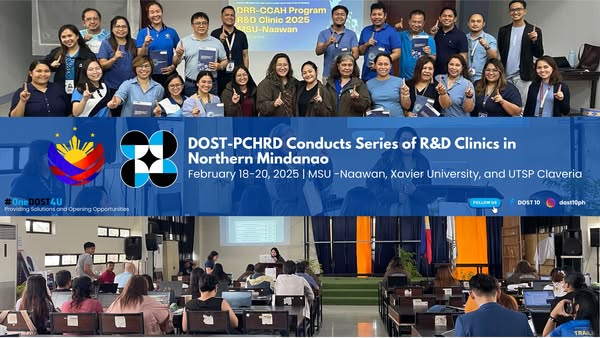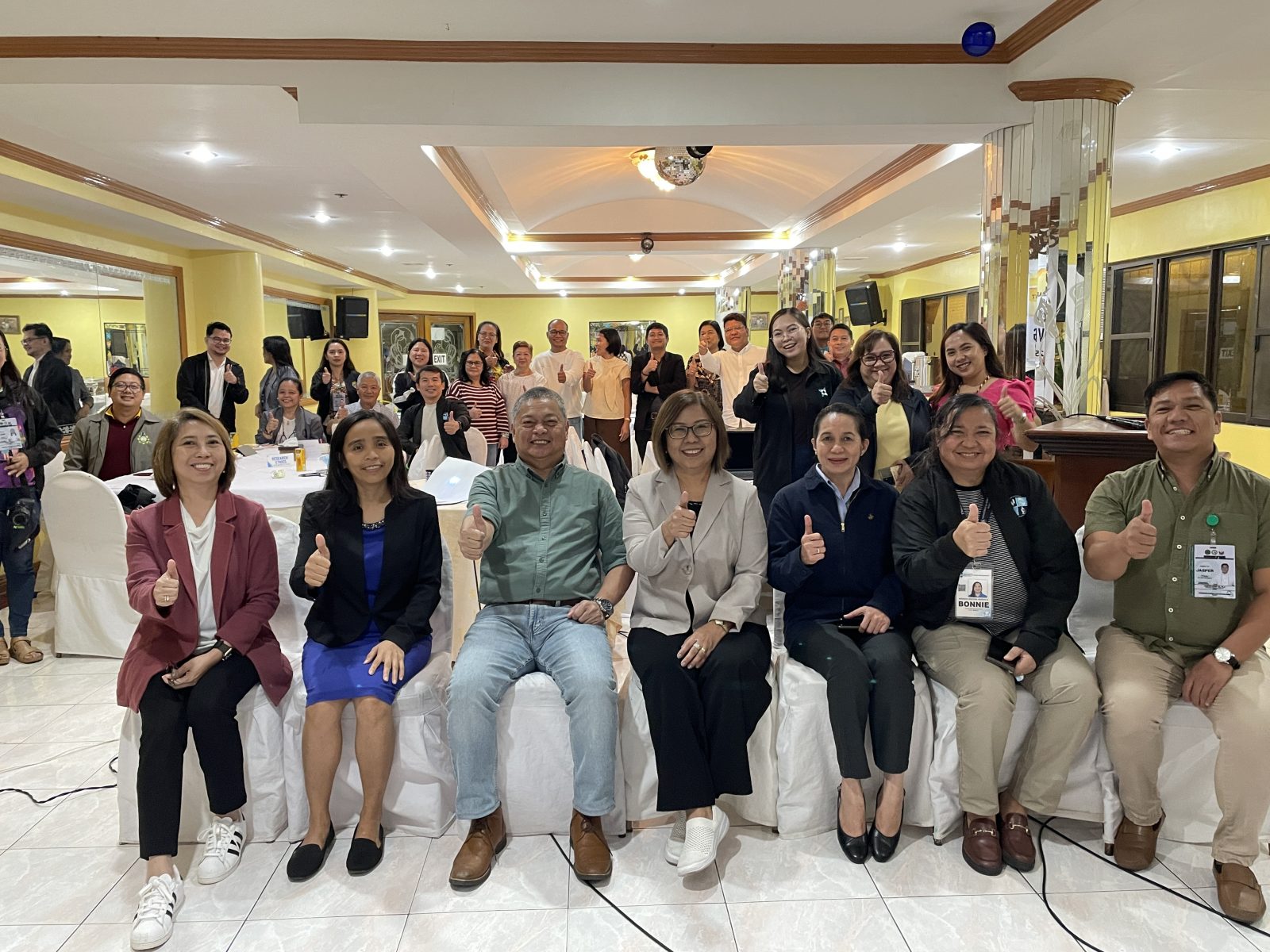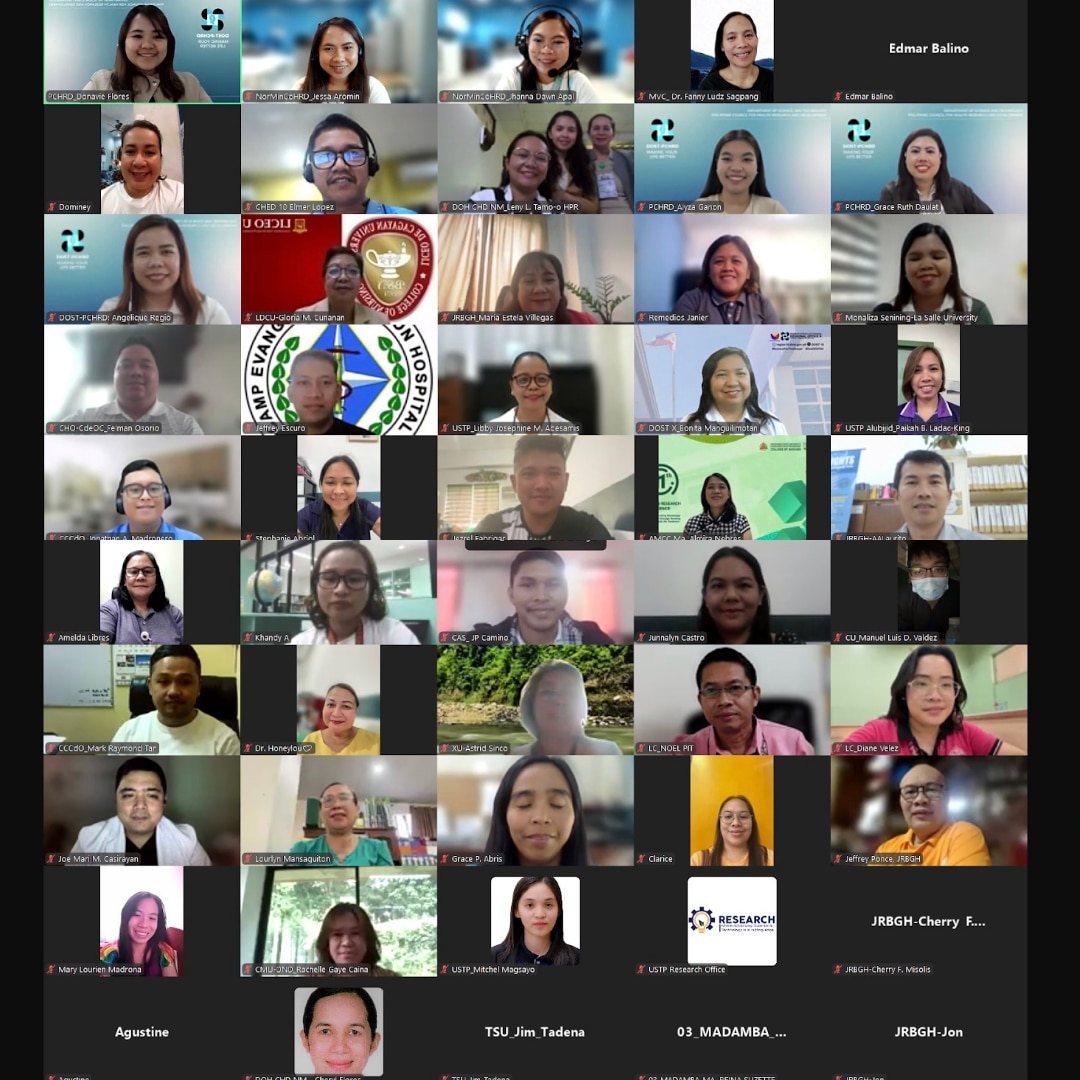“Our very own researchers and experts are capable of producing world-class innovations and solutions,” Department of Science and Technology Undersecretary for Research and Development Rowena Cristina Guevara said in her closing remarks during the online Talakayang HeaRT Beat press conference held last May 17, 2021 via Zoom.Now on its 5th installment, Usec. Guevara highlights that the event was organized for the media to have “a platform of conversation with scientists, researchers and experts in health.”

DOST Secretary Fortunato de la Peña provided updates on some COVID-19 projects for diagnostics, public health surveillance and therapeutics supported by the DOST – Philippine Council for Health Research and Development (DOST-PCHRD):
- GenAmplify™ CoronaVirus Disease-2019 (COVID-19) rRT-PCR Detection Kit
Dr. Raul Destura of the Manila HealthTek Inc. together with his team from the University of the Philippines Manila – National Institutes of Health (UPM-NIH), developed the GenAmplify™ CoronaVirus Disease-2019 (COVID-19) rRT-PCR Detection Kit. With high specificity and efficiency, the first-locally developed diagnostic kit for COVID-19 is now approved by the Philippine Food and Drug Administration (FDA) for commercial use, at a much lower price than its foreign counterparts in the market.
To date, a total of 1,301 GenAmplify rRT-PCR Detection Kits were manufactured and delivered for free to 22 hospitals and laboratories inside and outside Metro Manila.
- Development of Swab Testing Stations
Inspired by the innovative phone-booth style testing stations from neighboring countries, the DOST-PCHRD and the DOST-Philippine Council for Industry, Energy and Emerging Technology Research and Development (DOST-PCIEERD) supported the development and distribution of the specimen collection booths (SCBs) designed by the Futuristic Aviation and Maritime Enterprise, Inc. (FAME) through the leadership of Mr. Arcelio Fetizanan Jr.
The SCBs are designed with a transparent front window, ventilation, and caster wheels for easier mobility, which will help minimize the risk of infection among healthcare workers who collect the samples for testing. A total of 132 SCBs, equally co-funded by PCHRD and PCIEERD, are already deployed to DOH-identified testing centers across Luzon, Visayas and Mindanao.
- Biosurveillance of COVID-19 in the Philippines through Whole Genome Sequencing of SARS-CoV-2 from Patients
Through the project supported by the DOST-PCHRD and DOH and conducted in cooperation with the DOH Epidemiology Bureau and the IATF Technical Working Group on COVID-19 variants, a total of 6,423 samples have been analyzed and sequenced, which also contributed to the classification of the P.3 variant first detected in the Central Visayas Region. By providing a better understanding of the spread of the virus, the project will contribute to the development of evidence-informed policies and programs which will help contain and manage the disease.
- In vitro Study on the Efficacy of Lauric Acid and Derivatives against SARS-CoV-2
This study found that VCO has the ability to decrease the amount of virus in low viral concentrations and to destroy the virus. With the need to validate this in the clinical setting, the DOST is already supporting the conduct of clinical trials on VCO as an adjunct therapy against COVID-19.
- The Effects of Virgin Coconut Oil among Suspect and Probable Cases of COVID-19
In recognition of the significant achievement of the projects, Sec. de la Pena also highlighted the efforts and contributions of Filipino researchers to the country’s pandemic response: “Allow me to express my gratitude to our Filipino researchers who are tirelessly working in the frontlines to help us fight this pandemic. We, at the DOST, are committed to support you in using your expertise to serve our Filipino people through scientific research,” he said.
“These are only examples of our initiatives, and we still have more in the pipeline,” Usec. Guevara emphasized. “But what these show us, is that our very own researchers and experts are capable of producing world-class innovations and solutions. We, at the DOST, believe in that capacity, and we commit to continue working for an enabling environment for research and development,” she said.
Source: Filipino researchers are capable of world-class innovations — DOST







